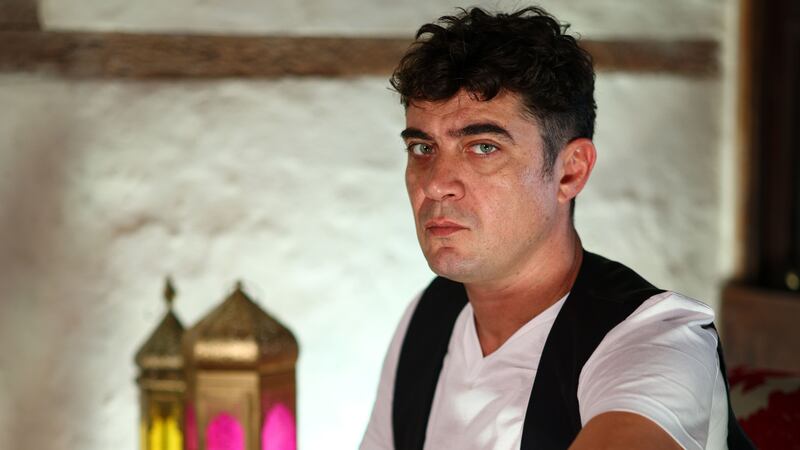If you’ve spent time getting professional mental health help, there are two things you know are true.
First is the people who say “I don’t need therapy!” are the ones who need it most, and often the reason why everyone else around them has to go to therapy.
The second is that not all therapists are going to help you. Sometimes you will find them a bit rubbish, actually.
The Psychologists Society of Ireland and Irish Association of Counselling and Psychotherapy have handy functions on their websites that allow you to search for an accredited professional by location, area of speciality and even language. Unfortunately, they do not have a “might be a bit crap” column.
READ MORE
Lowered expectations are useful – recommended, even – when looking for a secondhand car, or attending a friend’s slam poetry night. They are harder to ask of someone who is experiencing a mental health crisis
I have had the privilege of having several bad experiences with psychologists and counsellors (while it should be every person’s right to access basic health services, it functions as a privilege). I would add that “I am one of the lucky ones”, but I hate that sentence because it tells us just how little we expect from Ireland and its health services.
Lowered expectations are useful – recommended, even – when looking for a second-hand car, or attending a friend’s slam poetry night. They are harder to ask of someone who is experiencing a mental health crisis. People have an inconvenient tendency to seek help for the first time only when things have gotten bad. Really bad.
We like to say that picking up the phone, attending the GP or emailing a counsellor to seek treatment is the hardest step. So when people finally do ask for help, they think the hardest part is over. That’s what everyone says, right?
Nah. Welcome to the Thunderdome, kids – but instead of cage fights and Tina Turner and flame throwers, it’s just emailing therapists you thought had kind faces from their online profiles, asking, “Do you have availability?”
[ Group therapy: How to learn about yourself in the company of strangersOpens in new window ]
Last year, my therapist moved out of private practice into an impressive hospital-based job, which is great for him and anyone in that hospital (he is very good). But it is not great for me, and that’s who I primarily care about because I am selfish.
Looking for a new therapist is essentially a really expensive form of speed-dating. You could pay €60-€120 per awkward conversation with a stranger until you find the right one. When you first meet, you go through the things you would like to change, and you mentally dump the contents of a tatty plastic bag labelled “Bad Things That Happened To Me” on their desk to see if they can put them all together.
You are shopping your trauma around to see who can help fix it without getting ripped off by a cowboy operator, the way you would take your old Toyota to a few garages to get a quote.
I have a few rules now. I’ve learned that I don’t appreciate therapists with dreamcatchers in their office, who give names like “Saanvi” or “Virago” but are actually called Theresa on their invoice. I’m also wary of wearers of big clacky wooden beads.
This comes from my experience with my first psychologist, a man who spoke in a deep monotone which seemed very calming and monk-like. I trusted him until he told me that cognitive behavioural therapy was “too extreme” for anxiety and that I just needed to meditate the sads away. Then he tried to sell me his meditation MP3 recordings. I still get his marketing emails. He might not have a great bedside manner, but he does have some nerve.
[ Antidepressants and psychotherapy: a combined approach to treating depressionOpens in new window ]
Then there was the very expensive, highly qualified doctor I went to after my ADHD diagnosis, seeking therapy to work with my brain, not against it.
“I actually don’t believe in ADHD,” he told me in the first session.
“Then why have you listed ADHD as one of your specialties?” I should have replied.
He didn’t take card payment but sent me a way to pay online. I told him sometimes if I don’t do things like this instantly, I have problems remembering, so if he didn’t receive payment in the next few hours, he should send me a reminder.
I did remember to pay but the next session began with him lecturing me about taking personal responsibility and how I should not have pre-emptively asked him to send me a reminder. This was awkward because he had forgotten to send me an invoice. As I was leaving, I mentioned this as casually as possible.
Was I passive aggressive? No. I just wanted an invoice so I could claim money back on my insurance. I was paying this man €90 an hour so I could reassure him I wasn’t mad at him
The next session started with why I chose to tell him he forgot the invoice at the end of the session instead of while he was telling me off about taking responsibility for remembering stuff.
Was I avoiding conflict? Was I trying not to be passive aggressive? Was I passive aggressive? No. I just wanted an invoice so I could claim money back on my insurance. I was paying this man €90 an hour so I could reassure him I wasn’t mad at him.
So I moved on. I had to kiss a few more frogs before finding a prince (a lovely new therapist).
It is disheartening trying to find help when you’re least able, but I promise it is worth it. Please keep trying. Please?











